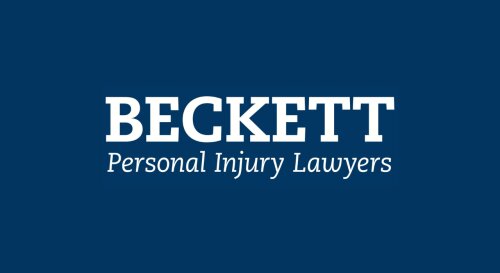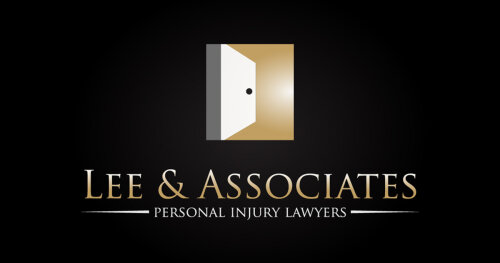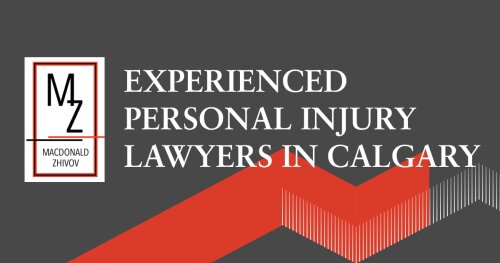Best Car Accident Lawyers in Canada
Share your needs with us, get contacted by law firms.
Free. Takes 2 min.
Or refine your search by selecting a city:
List of the best lawyers in Canada
About Car Accident Law in Canada
Car accident law in Canada is a complex area that covers the legal protocols and procedures following a vehicular accident. Canada's legal system offers both no-fault and at-fault insurance systems, depending on the province or territory. In most provinces, drivers are covered under a mandatory auto insurance policy, where each driver’s insurance pays for their own losses, regardless of who caused the accident. Legal claims can involve seeking compensation for pain and suffering, medical expenses, vehicle damage, and lost wages. Understanding the nuances of your province’s car accident laws is crucial if you are involved in an accident.
Why You May Need a Lawyer
There are several scenarios where hiring a lawyer may be beneficial following a car accident. These include disputes over who is liable, negotiating with insurance companies, or when an accident results in severe injuries or fatalities. Legal assistance might also be needed to interpret insurance policies, handle cases involving uninsured or underinsured drivers, and in instances where the accident leads to litigation. A lawyer can advise on your rights, help gather evidence, handle negotiations, and represent you in court if necessary.
Local Laws Overview
Car accident laws can vary significantly depending on the province or territory. Here are some key aspects:
- Insurance Requirements: Auto insurance is mandatory across Canada, but the extent of coverage varies. Provinces like Ontario and British Columbia operate under a hybrid no-fault system, while Alberta has a tort-based system.
- Determining Fault: The determination of fault can affect your compensation claims. In at-fault systems, it significantly impacts which party’s insurance pays for damages.
- Limitation Periods: Each province has a statute of limitations for filing a car accident claim. Typically, in most jurisdictions, it's within two years from the date of the accident.
- Direct Compensation Property Damage (DCPD): This allows drivers to recover the costs of vehicle damage directly from their own insurance, making the process more efficient.
Frequently Asked Questions
What should I do immediately after a car accident?
Ensure safety first, exchange information with the other driver, document the scene and damages, notify your insurance, and seek medical attention if necessary.
What if the at-fault party does not have insurance?
You may need to claim against your own insurance under the uninsured motorist coverage, if available, or pursue legal action directly against the driver.
Can I handle a car accident claim without a lawyer?
While it's possible, legal complexities or severe accidents often require professional legal advice to navigate claims effectively.
How is fault determined in a car accident?
Fault is determined based on traffic laws, witness statements, police reports, and sometimes accident reconstruction experts.
What types of damages can I claim after a car accident?
Common damages include medical expenses, vehicle repairs, lost income, and pain and suffering.
Do I still need to cooperate with the other driver’s insurance adjuster?
Cooperate but be mindful not to admit fault. It's usually wise to consult a lawyer before making statements.
Is there a deadline to file a lawsuit for a car accident?
Yes, the statute of limitations varies by province, commonly set at two years from the accident date.
If I’m injured, how is compensation for pain and suffering calculated?
Compensation is based on the severity of injuries, impact on life, and case law in the respective jurisdiction.
Can passengers in my vehicle claim accident benefits?
Yes, passengers may be entitled to claim insurance benefits for injuries since they are covered under most policies.
What if I was partially at fault for the accident?
Your compensation might be reduced by your degree of fault, depending on provincial laws.
Additional Resources
Consider consulting these resources for further assistance:
- Provincial Insurance Websites: Each province provides details on mandatory insurance requirements.
- Insurance Bureau of Canada (IBC): Offers comprehensive information on car insurance and accidents.
- Legal Aid Services: Provide assistance for those unable to afford a lawyer.
- Local Bar Associations: Useful for finding qualified car accident lawyers.
Next Steps
If you require legal assistance following a car accident, consider the following steps:
- Document the incident and gather all related evidence, including photos, witness contact information, and medical records.
- Contact your insurance provider to report the accident and begin the claims process.
- Research and consult with a car accident lawyer to understand your rights and legal options.
- Prepare for potential legal proceedings by organizing your documentation and understanding the claims process.
- Follow your lawyer's advice and collaborate closely for the best possible outcome.
Lawzana helps you find the best lawyers and law firms in Canada through a curated and pre-screened list of qualified legal professionals. Our platform offers rankings and detailed profiles of attorneys and law firms, allowing you to compare based on practice areas, including Car Accident, experience, and client feedback.
Each profile includes a description of the firm's areas of practice, client reviews, team members and partners, year of establishment, spoken languages, office locations, contact information, social media presence, and any published articles or resources. Most firms on our platform speak English and are experienced in both local and international legal matters.
Get a quote from top-rated law firms in Canada — quickly, securely, and without unnecessary hassle.
Disclaimer:
The information provided on this page is for general informational purposes only and does not constitute legal advice. While we strive to ensure the accuracy and relevance of the content, legal information may change over time, and interpretations of the law can vary. You should always consult with a qualified legal professional for advice specific to your situation.
We disclaim all liability for actions taken or not taken based on the content of this page. If you believe any information is incorrect or outdated, please contact us, and we will review and update it where appropriate.
Browse car accident law firms by city in Canada
Refine your search by selecting a city.
















